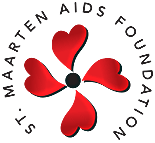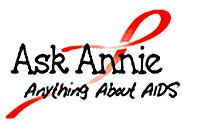knowledge is power get informed
Can I get HIV from “French kissing”?
Deep or open-mouthed kissing, sometimes known as “French Kissing” is a very low risk activity in terms of HIV transmission. There has been only one documented case of someone becoming infected with HIV through kissing - a result of exposure to infected blood during open-mouthed kissing.
If you or your partners have open wounds in your mouth, you should avoid kissing until the wound has healed.
Can I become infected with HIV through normal social contact?
HIV is not air-borne, water-borne or food-borne.
That means simply that you CANNOT get HIV from
- Shaking hands
- Hugging
- Kissing
- Sharing utensils
- Using the same toilet seat
- Using the same swimming pool
- Being exposed to sneezes and coughs
Can I get HIV from a mosquito?
No, it is not possible to get HIV from mosquitoes or other biting and bloodsucking insects. The results of experiments and observations of insect biting behavior indicate that when an insect bites a person, it does not inject its own or a previously bitten person's or animal's blood into the next person bitten. Rather, it injects saliva, which acts as a lubricant so the insect can feed efficiently.
Diseases, such as yellow fever and malaria are transmitted through the saliva of specific species of mosquitoes. However, HIV lives for only a short time inside an insect. Unlike organisms that are transmitted via insect bites, HIV does not reproduce (and does not survive) in insects. Thus, even if the virus enters a mosquito or another insect, the insect does not become infected and cannot transmit HIV to the next human it bites.
There are several reasons why a mosquito or other insect cannot transmit HIV from one person to another even if there is HIV-infected blood left on its mouth parts:
1) Infected people do not have constantly high levels of HIV in their blood streams.
2) Insect mouth parts retain no (or too small amounts of) blood on their surfaces.
3) Finally, scientists who study insects have determined that biting insects normally do not travel from one person to the next immediately after ingesting blood. Rather, they fly to a resting place to digest the blood meal.
Epidemiological studies (that examine statistics on where and how HIV spreads) have shown no relationship at all between HIV and the existence of mosquito’s or mosquito bites.
A member of my family or close friend of mine has HIV; am I also at risk?
Although HIV has been transmitted between family members in a household setting, this type of transmission is extremely rare.
These transmissions are believed to have resulted from contact between mucous membranes and infected blood. To prevent even such rare occurrences, precautions should be taken in all settings including the home to prevent exposure to the blood of persons who are HIV infected, at risk for HIV infection, or whose infection and risk status are unknown.
For example, gloves should be worn during contact with blood or other body fluids that could possibly contain visible blood, such as urine, faeces, or vomit.
Cuts, sores, or breaks on both the caregivers' and patients’ exposed skin should be covered with bandages. Hands and other parts of the body should be washed immediately after contact with blood or other body fluids.
Surfaces soiled with blood should be disinfected appropriately. Practices that increase the likelihood of blood contact, such as sharing of razors and toothbrushes, should be avoided.
Needles and other sharp instruments should be used only when necessary and handled according to recommendations for health care settings. (Do not put caps back on needles by hand or remove needles from syringes. Dispose of needles in puncture proof containers out of the reach of children and visitors).
How long can HIV survive outside the human body?
Generally the fragile nature of the virus prevents it from surviving for a substantial amount of time in the open air. The length of time HIV can survive outside the body is dependent on the amount of HIV present in the body fluid and the conditions the fluid is subjected to.
Note that HIV is fragile and many common substances such as hot liquid, soap, bleach, alcohol, and the gastric juices found within your stomach can destroy the virus.
Your skin is a 100% proof barrier against HIV. The virus cannot enter your skin unless there is an open bleeding wound. If you get blood on your skin, simply wash with water and soap. There is no need to scrub because this might damage the skin.
It is good practice to be careful with any blood spill, because one can never tell if the person it came from has HIV or other blood borne infections. You can safely clean such blood spills with water and Clorox.
Is there a risk of HIV transmission when getting a tattoo or a body piercing, or while visiting the barber or hairdresser?
Persons who carry out body-piercing and tattoos should follow procedures called "Universal Precautions", which are designed to protect both workers and their customers from the transmission of blood borne infections such as HIV and Hepatitis B. The guidelines state that any instrument designed to penetrate the skin such as tattoo or acupuncture needles should be either used only once and discarded (disposable), or should be thoroughly cleaned and sterilized after each use.
When visiting the barber there is no risk of infection unless the skin is cut (which may occur if the barber accidentally cuts you) and if there is a transfer of infected blood. If the instruments are contaminated with infected blood and are not sterilized between clients there is a risk of HIV transmission.
Am I at risk of becoming infected with HIV when visiting the doctor or dentist?
Transmission of HIV in a health care setting is extremely rare. All health professionals are required to follow infection control procedures when caring for any patient. These procedures are called Universal Precautions for infection control. They are designed to protect both patients and health care professionals from the transmission of blood borne diseases such as Hepatitis B and HIV.
If I have sex with a commercial sex worker (prostitute) will I get HIV?
Unprotected sex (sex without a condom) places you at a high risk of contracting the virus whether it is with a commercial sex worker or anybody else. Statistics from the Caribbean and several other parts of the world have shown that there is a higher prevalence or occurrence of HIV in commercial sex workers (prostitutes). Therefore by having unprotected sex with a commercial sex worker the risk of contracting HIV is high.
Am I at higher risk if I have sex with a member of the same sex?
HIV is transmitted sexually regardless of your sexual preference. Note however, that worldwide there is a higher prevalence of the virus in certain groups because of their sexual practices and therefore having unsafe sex with someone from one of these groups places you at a higher risk of contracting the virus. Men who have sex with men, commercial sex workers, and people who have a sexually transmitted infection are examples of such groups.
By following safe sexual practices (using a condom every time) you can reduce your chances of becoming infected.
What are the chances of becoming infected with HIV if my partner doesn't come inside me?
Whilst research suggests that high concentrations of HIV can sometimes be detected in pre cum, it is difficult to judge whether HIV is present in sufficient quantities for infection to occur. To guard against the possibility of infection with HIV or any other STI it is best to practice safer sex - sex with a condom from start to finish.
Can I infect my unborn child if I am positive?
Women with HIV can transmit the virus to their fetus. However, the use of special drugs, during pregnancy and at birth, can help reduce the transmission of HIV from mother to child.
For this reason it is important that every pregnant woman takes an HIV antibody-test. Medicines that reduce the chance of infection for the child are available for all pregnant women that are HIV infected and live on St. Maarten. It does not matter if you are insured, non-insured, legal or illegal on the island. Sometimes it is advised to repeat this test later during the pregnancy. Steps to prevent HIV transmission to the baby can be taken even if very late in the pregnancy.
For additional information you can check with your doctor or Dr. van Osch at Union Road Medical Clinic. More information on HIV and pregnancy can be found here.
Can the virus be transmitted through breastfeeding?
Yes, HIV is present in infectious amounts in breast milk. HIV can be passed from an HIV infected mother to her baby through breastfeeding. Most HIV+ children in the Caribbean have been infected through mother-to-child transmission of HIV.
This can be prevented when an HIV infected mother does not breastfeed her baby and uses other alternate milk recommended by her doctor. More information on HIV and pregnancy can be found here.



